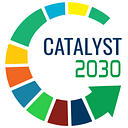Agency and Ownership are Key to Sustainability
Everyone is a guardian
by Rana Dajani, We Love Reading
At We Love Reading (WLR) we train women, men and youth how to read aloud in their native language in a public space in their local neighbourhood, sharing stories from the local culture with children.
Shifting the strategy
Initially, the programme was about encouraging children to read for fun and to fall in love with reading and learning. We heard stories like Nabilah’s who found solace in handling her cancer through her work with WLR. Another ambassador, Maram found a new job. Asma created a youth project and Ala started her own NGO and many other inspiring stories. In our work, we wanted to understand the unique aspects of WLR that led to these impacts.
Through these stories, we found the transformational impact on the WLR ambassadors themselves, the majority of whom are women. Hearing firsthand stories from the women about how they discovered their voices, both literally through reading and figuratively through leading reading-aloud sessions in their neighbourhoods.
An important hallmark of WLR is that the ambassadors are known in their community and credited for the positive impact on the children. While the WLR team operates in the background, the ambassador gains self-confidence from the children, families, and community due to their contributions. This self-assurance leads to a realisation that they are important and empowers them to make an impact.
Scaling impact through agency and ownership
WLR facilitates these internal changes by placing trust in each ambassador’s knowledge of her community and her ability to determine the best time and place to conduct the reading sessions. Each ambassador has the freedom to leave whenever she chooses; she is regarded as the expert whom we consult to learn from her experience.
The reason We Love Reading has been able to scale to 8,500 ambassadors in 69 countries, serving over 575,000 children stems from our non-monetary approach because they are doing this for personal fulfilment and to benefit their community. This approach fosters in her the feeling of agency and ownership –a fundamental human trait that enables our species to survive, thrive, and flourish. Unfortunately through development and humanitarian programmes, this innate sense of agency has been overlooked leading people to be viewed as victims in need of saving, rather than capable individuals.
At WLR we enable this by asking ambassadors to use culturally relevant actions that are universally aligned with shared universal human values. Thus it is not threatening to local culture or traditions and the initiative is embraced by all.
Empowering ambassadors to become changemakers
However, that little step is enough to unleash the inner potential of these women empowering them to become changemakers. This shift in focus of our mission went from fostering a love of reading to changing mindsets through reading, to nurture changemakers. We chose the word nurture because we believe this is an innate quality in individuals that just needs a nudge.
Yet, we also acknowledge that each person’s journey differs; each with their definition of success accomplished at their own pace. Rather than scaling the programme, we focus on scaling the mindset. In doing so we cultivate responsible citizens to be changemakers for the future.
Impact on the Ambassadors
Recently, we collaborated with Catherine Panter-Brick from Yale University and Praveen Kumar from Boston College to conduct a randomized control trial to examine the impact of WLR on women refugees who become WLR ambassadors. The research demonstrated a significant improvement in life satisfaction. This supports our theory of change, which begins with realizing the importance of reading. Through read-aloud sessions in neighbourhoods, WLR ambassadors foster a love of reading and enhance their confidence. This confidence leads to a realization of self-efficacy and responsibility towards her community. Motivated by this sense of agency to become a leader, working to solve challenges in her community in a sustainable manner because of the sense of agency that is kindled within her. For more insights into the research, read the full article.
Programme Sustainability
The We Love Reading approach is very important to incorporate into programme design to ensure the sustainability of the impact beyond the funding and implementation cycle. Majd, one of our WLR ambassadors, who has been conducting reading aloud in her community since 2016 summarizes this philosophy: “We read for ourselves and our community.”.
Ultimately, what we strive for is to foster a society of human beings who feel a sense of responsibility and have the agency to address challenges in their communities.
Hadith Mohd pbuh: “Everyone is a guardian”
Author
Peer-reviewed & Edited by
Explore the Research
Panter-Brick, C., Eggerman, J. J., Jefferies, P., Qtaishat, L., Dajani, R., & Kumar, P. (2024). Does volunteering impact refugee women’s life satisfaction, empowerment, and wellbeing? Experimental evidence, local knowledge, and causal reasoning. Social Science & Medicine, 347, 116735. https://doi.org/10.1016/j.socscimed.2024.116735
Neighbourhood Storyteller, the movie made about one of our WLR ambassadors www.theneighborhoodstoryteller.com/
References
Panter-Brick, C., Eggerman, J. J., Jefferies, P., Qtaishat, L., Dajani, R., & Kumar, P. (2024). Does volunteering impact refugee women’s life satisfaction, empowerment, and wellbeing? Experimental evidence, local knowledge, and causal reasoning. Social Science & Medicine, 347, 116735. https://doi.org/10.1016/j.socscimed.2024.116735
Cite this Article APA
Dajani, R. (2 May, 2024). Agency and Ownership are Key to Sustainability: Everyone is a guardian. Retrieved month date year from https://catalyst2030.medium.com/agency-and-ownership-are-key-to-sustainability-39bfd810a552.
